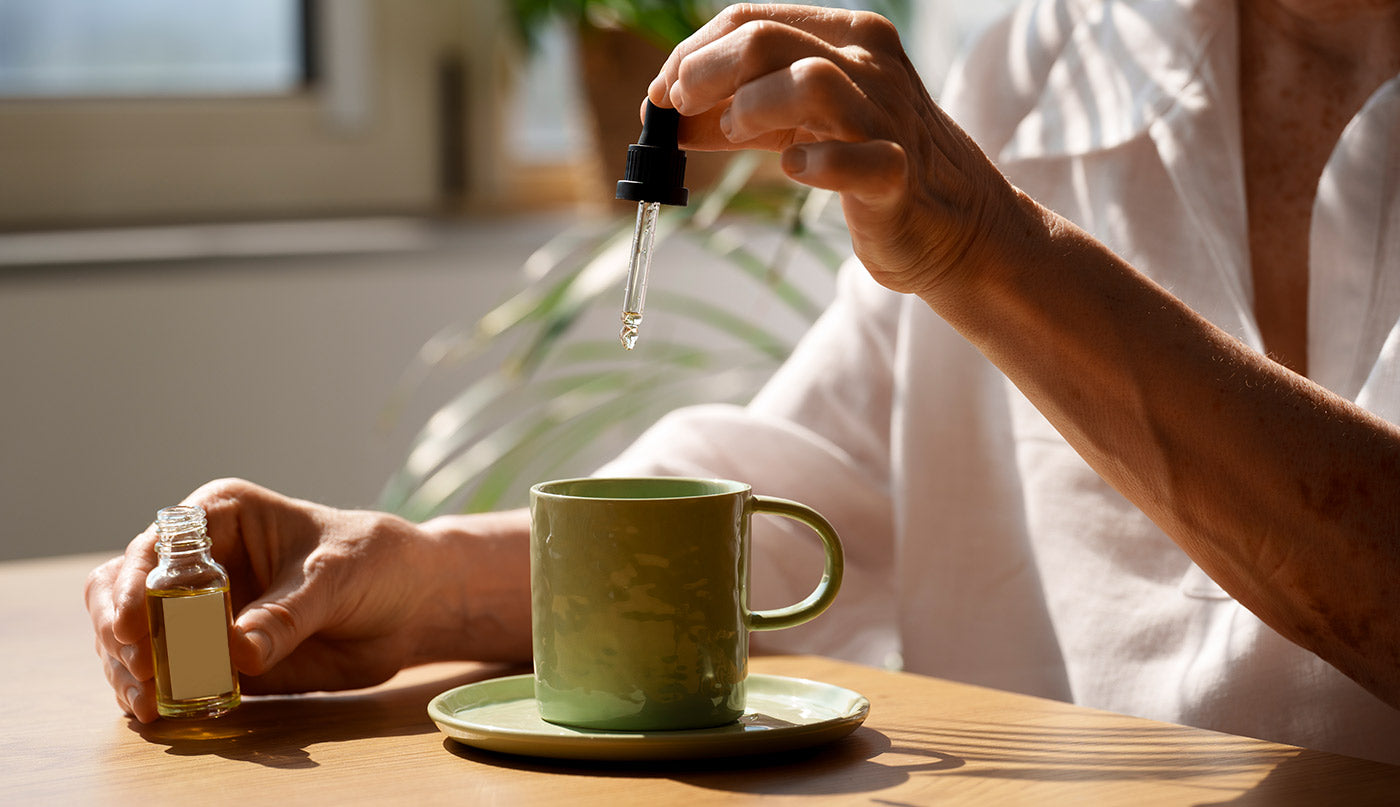
Women Turning to Alternative Medicine for Relief of Menopause Symptoms
Menopause is a natural stage in every woman’s life, but for many, the transition is anything but smooth. Hormonal changes can trigger a wide range of symptoms, including hot flushes, night sweats, sleep disturbance, mood swings, anxiety, and even depression. While traditional hormone replacement therapy (HRT) can be effective, it’s not always suitable or desirable for every woman.
This has led many to seek non-hormonal, natural options, and a growing body of research suggests that alternative medicine may play a role in easing some of the challenges of menopause.
The Shift Toward Alternative Medicine
The legalisation of medical cannabis in several jurisdictions worldwide has sparked new research into its therapeutic uses. In Australia, patients can access prescribed alternative medicine under medical guidance, and interest is rising, especially among women navigating the perimenopausal and postmenopausal years.
Recent studies show that women are increasingly using alternative medicine to help manage the symptoms of menopause, particularly where traditional treatments have fallen short or aren’t a good fit.
Key Findings from Recent Research
A new survey study, published in Menopause (2022), sheds light on how women are turning to alternative medicine for relief:
- High usage rates: Around 86% of women in the study reported current use of alternative medicine, with 79% specifically using it to manage menopause-related symptoms.
- Most common symptoms targeted: Sleep disturbances (67%) and mood or anxiety (46%) were the leading reasons for use.
- Popular methods of use: The most frequently reported modes were vaping (84%) and edibles (78%).
- Perimenopause vs. post-menopause: Women in perimenopause reported significantly worse symptoms - particularly anxiety, depression, and hot flushes - than those in post-menopause, and were more likely to use alternative medicine as part of their care.
Why Women Are Seeking New Options
Menopausal symptoms can be long-lasting and deeply disruptive. For women unable or unwilling to take hormone therapy, alternatives are limited.
Alternative medicine is appealing because it may help regulate sleep, reduce anxiety, stabilise mood, and ease chronic pain—areas where many women struggle during menopause. Some observational studies also suggest possible cognitive benefits after treatment, though further research is needed.
Importantly, this study is one of the first to specifically look at alternative medicine use for menopause-related issues, highlighting a clear demand for more research and clinical guidance.
What This Means for Women
While the findings are promising, they also come with caveats:
- Evidence is still early: We don’t yet have large-scale clinical trials confirming safety and efficacy of alternative medicine for menopause.
- Individual response varies: Different cannabinoid profiles, doses, and methods of use can lead to different effects.
- Professional guidance is essential: Women should consult with a doctor experienced in prescribing alternative medicine to ensure safe and effective care.
A Holistic Path Forward
Menopause is complex, and no single treatment works for everyone. Alternative medicine may become a useful tool for managing sleep, anxiety, and mood especially for women in perimenopause, who often experience more severe symptoms.
At Herbly, we believe in combining safe, evidence-informed alternative medicine with a holistic approach that includes nutrition, exercise, mindfulness, and ongoing medical support.
Ready to get started? Book your first consultation and speak with an Australian doctor about safe, natural options tailored to you.
Menopause Symptoms: What the Research Says
Research on CBD specifically for menopause is still emerging. Most evidence comes from small human studies, animal models, and laboratory research that examine how CBD may affect symptoms that overlap with menopause, such as sleep disturbances, anxiety, and inflammation.
For example, a 2022 Rutgers University study found that CBD improved glucose tolerance in estrogen-deficient mice (a proxy for postmenopausal women). While promising, such findings require validation in human clinical trials.
Below is a symptom-by-symptom summary of where research currently stands.
Mood Changes and Anxiety
Mood swings, irritability, and anxiety are common during menopause, with up to 70% of women experiencing emotional fluctuations. Hormonal changes can affect neurotransmitter activity, leading to unpredictable shifts in mood and stress tolerance.
CBD interacts with serotonin receptors, which may help stabilise mood and reduce anxiety. While specific menopause-focused studies are limited, some women report subjective improvements in emotional wellbeing when using CBD under medical guidance.
Sleep Disturbances and Insomnia
Difficulty sleeping affects around 61% of menopausal women, with nearly half experiencing chronic insomnia. Night sweats and hot flushes often worsen these issues. CBD may support better sleep by:
- Reducing anxiety that interferes with falling asleep
- Addressing pain that disrupts rest
- Potentially influencing sleep cycles directly
One study found that nearly 67% of participants reported improved sleep after taking CBD, though outcomes were dose-dependent. For menopausal women, the right dose may make the difference between restless nights and more restorative sleep.
Hot Flushes and Night Sweats
Evidence here is mostly anecdotal, with some women reporting fewer and less intense vasomotor symptoms when using CBD. The theoretical basis is that CBD may interact with serotonin receptors involved in temperature regulation, though formal clinical studies are still lacking.
Joint Pain and Inflammation
Estrogen naturally helps regulate inflammation, and its decline during menopause can contribute to joint stiffness and pain. CBD has demonstrated anti-inflammatory properties in multiple studies, particularly related to arthritis.
By interacting with endocannabinoid receptors in immune cells, CBD appears to reduce inflammatory responses. For women with menopause-related joint discomfort, oral or topical CBD products may provide targeted relief.
CBD and Sexual Health
Research into CBD’s role in sexual health is limited, but topical CBD may increase blood flow to tissues, potentially enhancing pleasure and comfort. Some patients report improved intimacy when using topical CBD creams externally on the vulva and clitoral area. However, it should not be applied internally.
Choosing the Right Products for Menopause
The growing CBD market offers many product types, each with advantages for different symptoms:
- CBD Oil: Taken under the tongue for faster absorption or added to food. Flexible dosing with generally high bioavailability.
- CBD Gummies or Capsules: Convenient pre-measured doses. Slower onset since they pass through the digestive system.
- Topical CBD Products: Creams and balms that work well for localised issues like joint pain or muscle tension, with minimal systemic effects. May also enhance sexual comfort when used externally.
Frequently Asked Questions (FAQs)
Does CBD increase estrogen levels?
No, current evidence does not show that CBD increases estrogen. Instead, it may help manage symptoms associated with declining hormone levels by supporting the body’s endocannabinoid system.
What is the best relief for menopause?
Hormone replacement therapy (HRT) remains the most effective treatment for many symptoms, especially hot flushes and vaginal dryness. For those seeking non-hormonal options, lifestyle changes, targeted supplements, and CBD under medical supervision may provide benefit.
What is the best natural hormone replacement for menopause?
There is no single “natural” replacement for estrogen. However, plant-based phytoestrogens, such as those found in soy, may help. In one small study, women following a low-fat vegan diet with soy reduced the frequency of moderate-to-severe hot flushes significantly.
What does CBD do for menopause?
CBD may help with mood, sleep, pain, and inflammation by interacting with the endocannabinoid system, a key regulator of balance in the body. While not a cure, it may provide symptom relief for women navigating menopause.
Conclusion
Women are increasingly exploring alternative medicine to help ease the transition through menopause. While more research is needed, early findings suggest it may be particularly helpful for sleep and mood-related symptoms. For women seeking non-hormonal options, alternative medicine represents a potential path to better balance, comfort, and quality of life.
Reference
M Kathryn Dahlgren, Celine El-Abboud, Ashley M Lambros, Kelly A Sagar, Rosemary T Smith, Staci A Gruber. A survey of medical cannabis uses during perimenopause and post-menopause. Menopause, 2022 Aug 2. doi: 10.1097/GME.0000000000002018.
Helpful Links
Hormonal Balance in Women: How Alternative Medicine May Help
How to Access Alternative Medicine in Australia
Endometriosis Uncovered: Exploring Causes, Symptoms, and Treatment Options
Understanding the Endocannabinoid System


